The PSC Library is open M-W 8am-7:00pm and Th-F 8am-4:30pm. PSC Librarians are available through the "Chat Now" button or via email at librarians@prairiestate.edu.

Join the library for a discussion on Octavia Butler’s Kindred
Book Club: Octavia Butler's Kindred
Monday, November 8th
1:00 – 2:00pm
Google Meet joining info
Video call link: https://meet.google.com/ots-modw-nqp
Or dial: (US) +1 617-675-4444 PIN: 618 492 547 8274#
Did you know that it is easy for us to create a research guide just for your class? Your students might benefit from this if your class has a research component or lots of complicated processes. Take a look at this one for College Reading and Writing. These guides aren’t just for English and Communications though. See this one for Health 102, this one for Alternative Energy - ELEC221, or one for Political Science. Contact us if your students could benefit from one.
Have you been to the library lately? We have new book displays that rotate monthly, along with some interactive displays on the same theme. Stop in to pick one up, or just say hi.
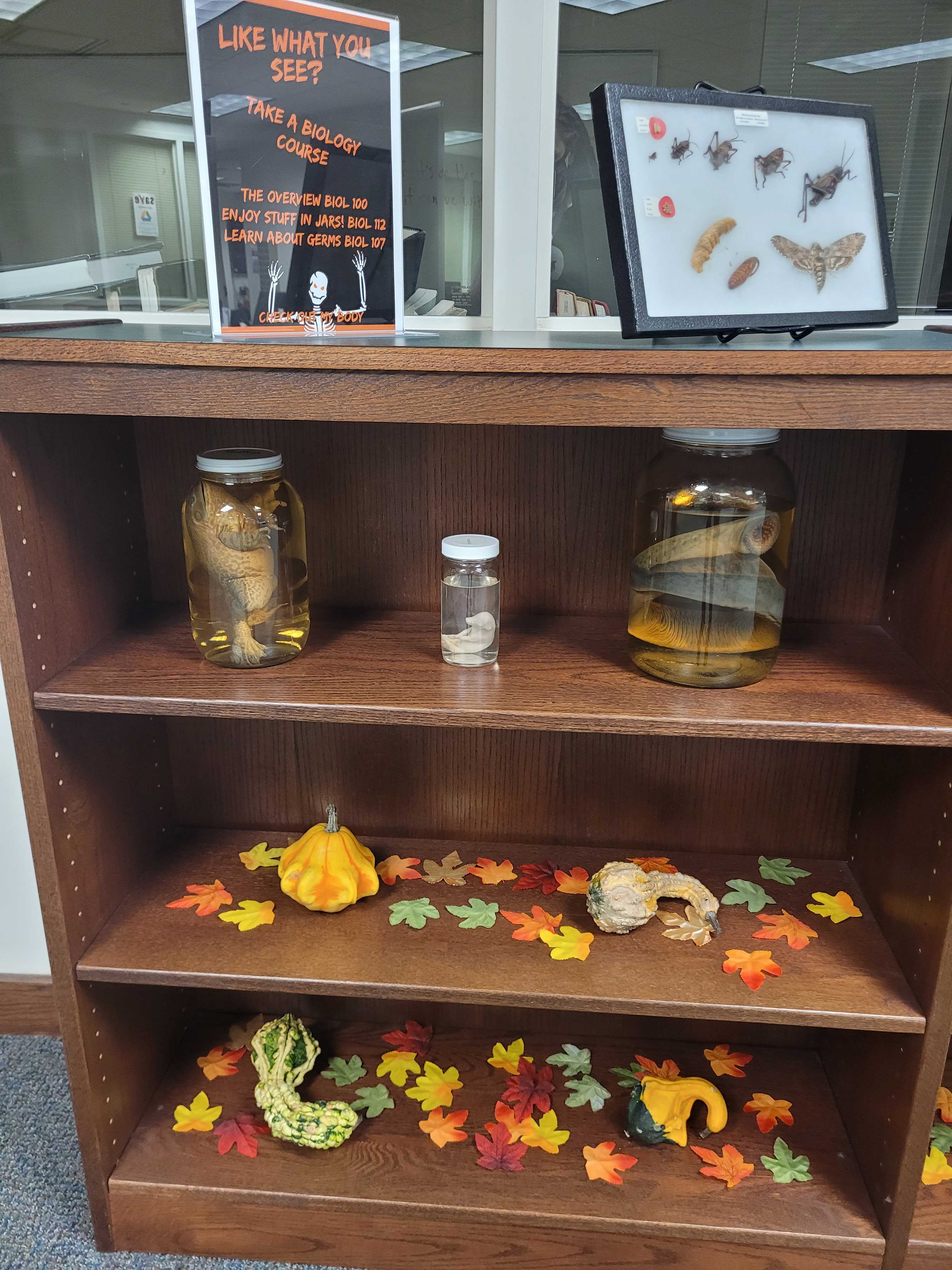
We all know about Google, but did you know that you can search more effectively with some tips and tricks? Most of these tips will work in any database, including the library’s. This will save you time, and frustration, which we can all agree is a good thing. I’ll describe some of the pictured search tips below, along with a few others.
“Quotation Marks”
Google (and other search engines) retrieve your results by the keywords you put into the search bar. Unfortunately, it doesn’t always look for them in the order you type. This can lead to search results you don’t want or are just absurd. Put quotation marks around your search if you would like Google to look for those words verbatim.

Dashes
A dash works much like the Boolean operator, “NOT,” or like a minus sign. This is useful if you are searching for a keyword with multiple meanings. The example below is “dolphins – football.” This person is looking for “dolphins,” the mammal, not the Miami Dolphins, the football team.
Asterisks/Wildcards
Oftentimes you will conduct a search with incomplete information. For example, what if you want to search for an author? You know that the author’s first name is Jack and that the last name is something like Lon…, but you don’t recall the rest of the last name. You can type in the part of the last name you recall, and then fill in the part you don’t with an *. The database or search engine will then pull up every name that starts with “Lon.” In our case, this will bring up Jack London, among others. This function works especially well if you aren’t sure of the spelling of a name, title, or subject. The asterisks or wild card searching will work at the front of the word too.

Site
Some websites are much more reliable than others. What if you want to conduct a search for a topic, and only retrieve results from government, or educational websites, which tend to be more reliable? In that case, you can use tagging, or the site: feature. This will pull out the subject of your choice from the type of website you select.
For example, what if I want to learn more about clean water, and retrieve results from government websites? I would use this search, .gov: “clean water”. This search combines the quotation marks and the site: feature and will bring back results on clean water from government websites.
There are more below. Enjoy your newfound research skills. When you’d like more assistance to tackle questions like, “How do other two-year college faculty use podcasts in their classes?”, please reach out to us at librarians@prairiestate.edu.
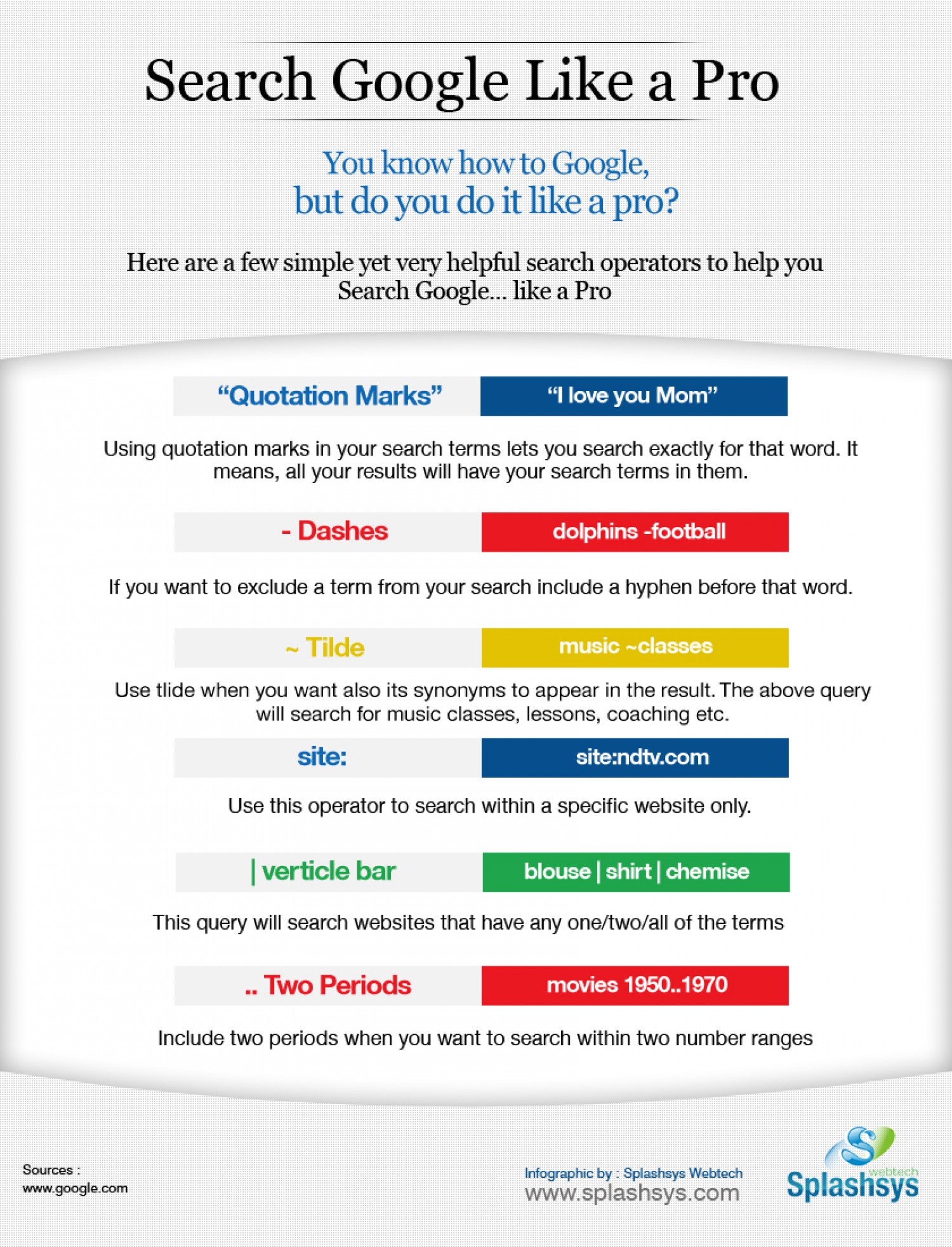
The library isn’t magic; people make it possible. Most of us work behind the scenes and do work that is important, but unglamorous. This series brings you behind the circulation desk to learn more about cataloging.
We all organize our personal libraries based on individual preferences and habits: by author’s last name, size, color, or not at all. We are the only users, and we understand our thought processes. To share a collection, we need an agreed-upon way to retrieve information, and we need people to organize it.
For example, to ensure you can actually find a new library book in the PSC Library, we first have to catalog it. Cataloging impacts whether you can find it later on, or if we’ll run into snarls on the backend. This process is so important that nothing can officially become part of the collection, or be placed on a shelf before it is done.
A cataloger will create something called bibliographic records to describe all aspects of the book, or DVD, or whatever the format. Metadata (data that describes data) is created to categorize the item. This metadata is entered into MARC records, which look like this:
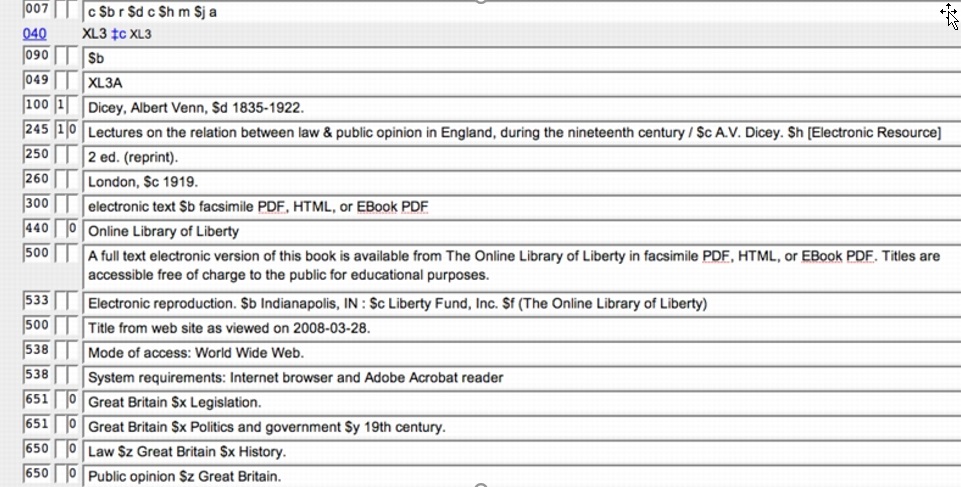
Much later, a call number is created using this outline. Many cataloguers are working hard to change the fixed language in these schemata, to better represent the contributions of the diverse communities of librarians and users.
The PSC Library uses Library of Congress Classification. This classification system is used mostly in academic and research libraries, including ours, and determines how we organize our collection and create bibliographic data to support teaching and learning in higher education
Clear as mud? This is a complicated process that is just one of many that takes place entirely behind the scenes. Without catalogers and their organizational systems, we would just have a pile of books, or worse- no way to find eResources at all.
In November we celebrate Native American Heritage Month. President George H. W. Bush declared November Native American Heritage Month in 1990 to honor and celebrate Indigenous Peoples. We will continue this tradition to inspire and educate others to support Indigenous communities, who continue to live in Chicagoland.
We recognize that the library is on stolen land, and the accompanying display will include more information about land acknowledgments.
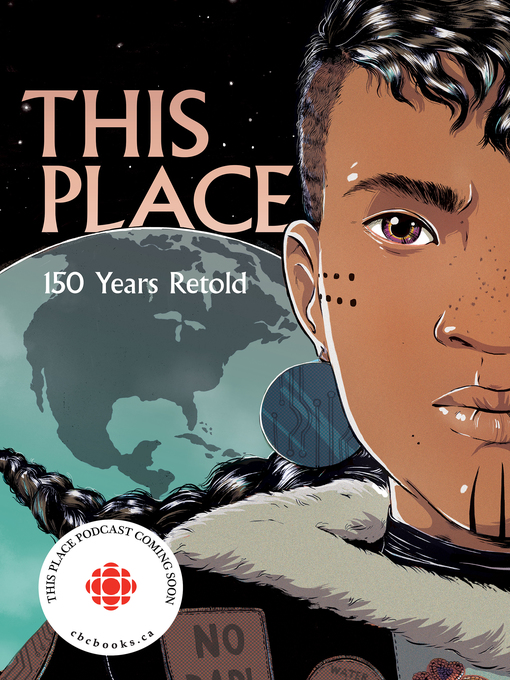 This PlaceKateri Akiwenzie-Damm |
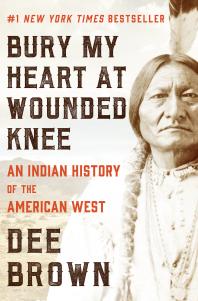 Bury my Heart at Wounded KneeDee Brown |
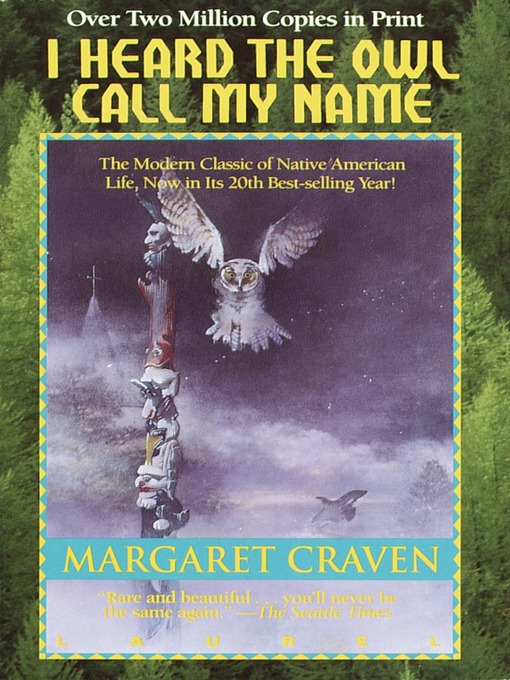 I Heard the Owl Call My NameMargaret Craven |
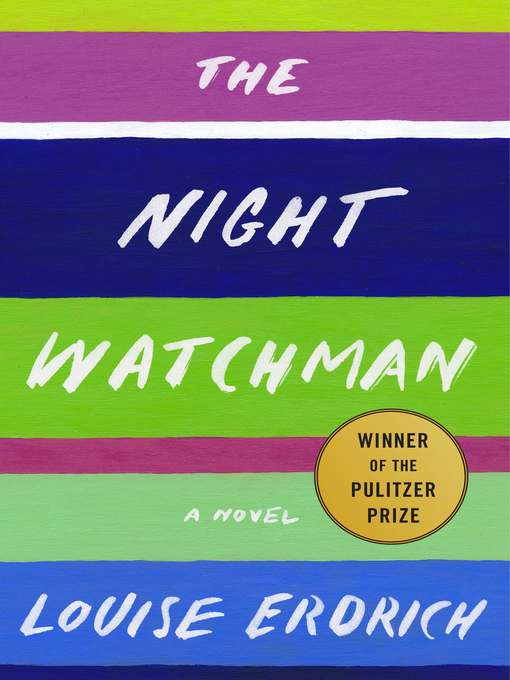 The Night WatchmanLouise Erdrich |
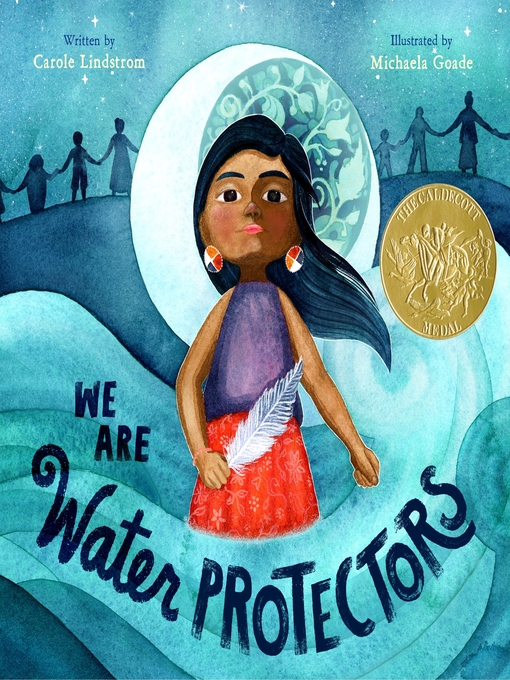 We Are Water ProtectorsCarole Lindstrom |
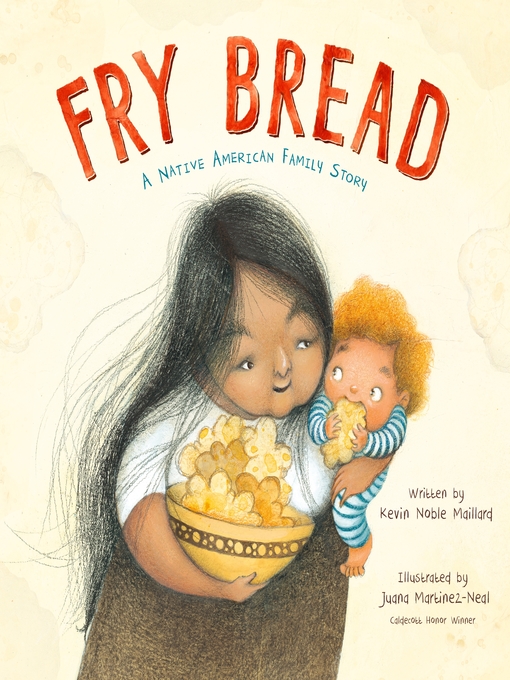 Fry BreadKevin Noble Maillard |
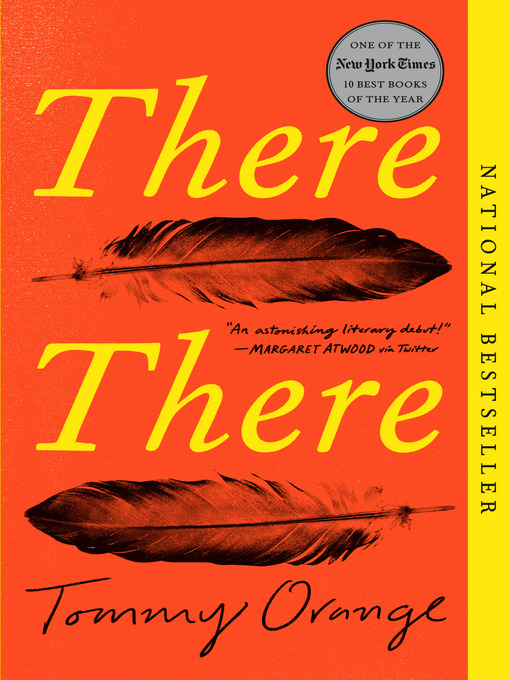 There ThereTommy Orange |
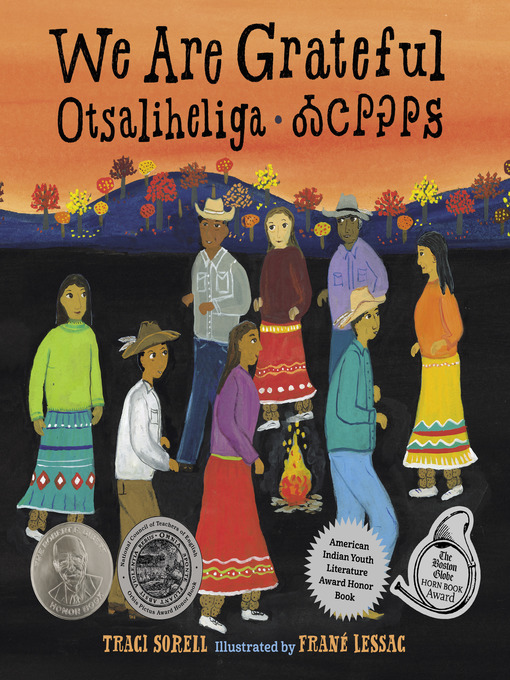 We Are Grateful: OtsaliheligaTraci Sorel |
Lastly, the library is here for you; reach out with any questions at Ask a Librarian!